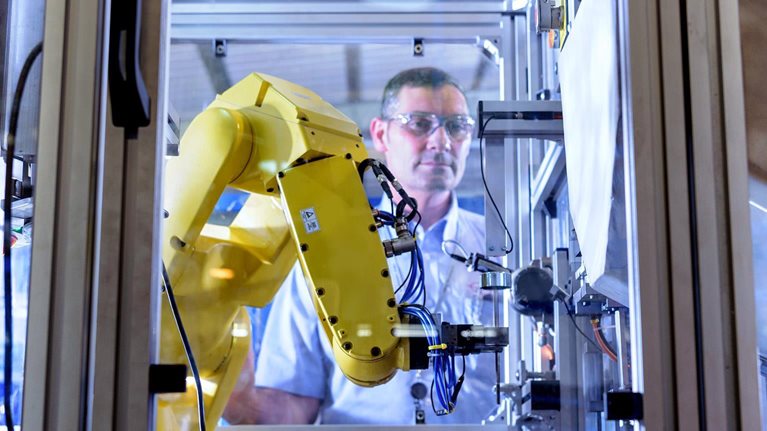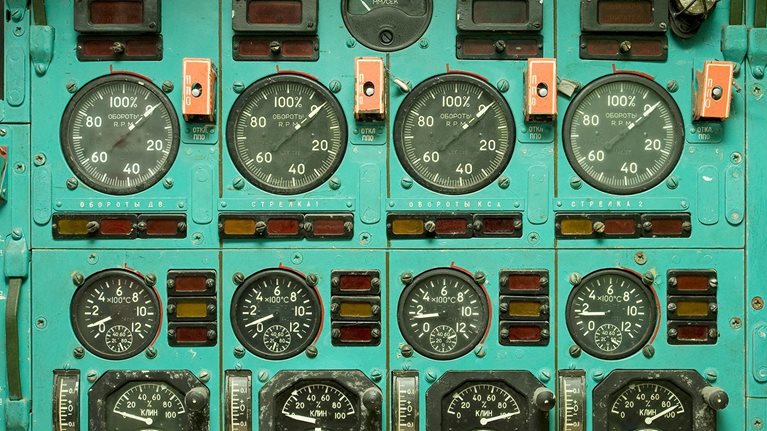Tim O’Reilly: I’ve been using the term “the next economy” to wrap up a whole load of concepts around technology and the future of work. We see a lot of concern about artificial intelligence, on-demand services, and robots, and we have this notion that these technologies are going to take away jobs. You hear people say, “Oh my gosh, we’re going to wipe out truck driving.”
What we haven’t created is an affirmative vision of what this technology could do that is today impossible and what is the work that needs doing. For me, there’s a cluster of principles that we can start with to identify what makes next-economy companies. One is that they enable humans, workers. You use technology to enable workers to do things that were previously impossible. I like to use Uber as an example.
James Manyika: Right.
Tim O’Reilly: You could call a cab on the street, you could call a cab by phone. But we had this latent capability in our smartphones to know exactly where the passenger and the driver are at all times. Uber said, “Oh wait. We can do this thing that was previously impossible. You can call a cab from anywhere. The driver can find out where you are and come right to you.” Magical, you know?
We’ve all been there in the old days, standing on some street corner in New York, waving vainly for a cab when, no doubt, there was an empty cab driving by two blocks away. Here was this new thing—augmenting the drivers made something new possible.
There’s another pattern that you see there, which is the platform pattern. It’s this idea that, increasingly, we see companies not as organizations that employ people full time but as organizations that create “affordances,” if you like, for those people to use the platform to perform quasi-entrepreneurial activity. So those two things alone are deeply transformative.
In a lot of ways, when you look at a platform-style business, it is empowering people to make decisions. There are a lot of critics who will say, “Well, an Uber driver isn’t really an entrepreneur. An Airbnb host isn’t really an entrepreneur.” And yet they are. They’re not told when to show up. They actually are encouraged to study what are the times when their income is going to be best. You have to figure out where are the best places to go. Uber says it will provide tools to help you understand that.
Would you like to learn more about the McKinsey Global Institute?
James Manyika: When I think about what the next economy should look like, I think there are a tremendous number of opportunities and challenges we’re going to need to solve. And, to me, they come in several forms. The first one is that we do need economies that are growing, that have high levels of productivity, and that also allow people to participate in those economies. That’s the way in which we’ve been able to drive prosperity over a long period of time. So all of these economies are going to have to address that challenge in this next economy, particularly if the next economy is the next decade or so.
We know, historically—and it’s a factual thing—that there are two things that have driven growth and prosperity the world over. Technology is one of those and globalization is the other. We now find ourselves in an odd place where, in the next economy, we need to continue to embrace these two drivers of growth and prosperity, but at the same time fix the adverse effects that they have.
Tim O’Reilly: Economic growth is good because of two things. One, if you have population growth, you need the economy to grow at least as fast as the population to keep living standards even. Economic growth is good because, presumably, it increases the wealth of a population if economic growth exceeds the population’s rate of increase—but only if that wealth is distributed properly.
James Manyika: Absolutely.
Tim O’Reilly: One of the big changes in our economy, over the past few decades, is that it has become much more of an extractive economy in which corporate profits are going up. We have sort of abandoned the idea that growth is only good if it leads to prosperity for all. It’s not good if it leads to prosperity for a very small number of people, who then don’t spend the money, and instead it just sits on the sidelines.
James Manyika: Oh, absolutely. In fact, that’s one of the challenges that, if we’re creating a list, we’re going to add to the list—this idea of how do we grow and develop and innovate and, at the same time, include everybody and have the benefits of all that go to everybody? I think it’s quite striking, for example, that even through periods in the past decade when productivity has been good, the share of the national income that’s gone to wages has actually declined. At the same time, I think the response should not be, “Let’s throw out the drivers of growth and productivity.”
Tim O’Reilly: Exactly.
James Manyika: It’s “let’s fix them and make sure that we are getting the benefits, and everybody is enjoying the benefits.” That’s what we haven’t done as well. The next economy has to solve that.
For more from this extended conversation, watch “The next economy and what it means for business.”


